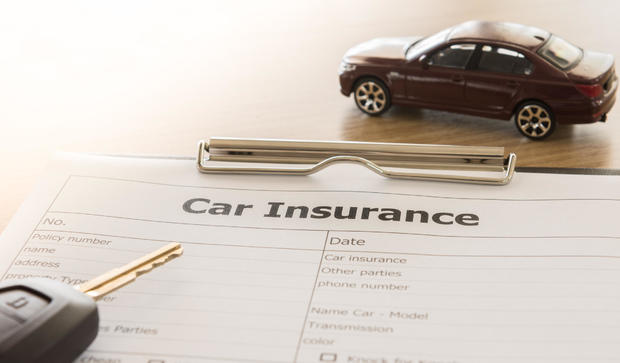Auto insurers put your mileage under a microscope
How would you answer this question of ethics? You just got a job in high-tech near Los Angeles. That will mean driving 50 miles a day each way on the notoriously congested I-405. Do you call your car insurer and tell on yourself?
Answer: Do you want to fork over an additional $1,000?
When it comes to the cost of car insurance, in most U.S. states mileage matters, research from insuranceQuotes.com shows. The survey separated drivers with increased annual mileage into three buckets. People who went from driving 5,000 miles per year to 10,000 miles saw their premiums rise 7 percent; those who increased their driving to 15,000 and 20,000 miles saw rate hikes of 8 percent and 9 percent, respectively.
In some states, the costs of driving more are considerably steeper. For California motorists, an increase from 5,000 to 20,000 miles nets you a 26 percent boost in car insurance premiums.
By contrast, an increase in annual mileage doesn't earn you any increase in premiums. Other states fall somewhere in between, with Alabama, Virginia and the District of Columbia coming in on the high side, while Georgia, Rhode Island, Oregon and Texas show "negligible price increases when driving additional miles," according to insuranceQuotes, which offers information on auto, health, home and life insurance.
So, why pick on Californians, other than the fact that they own the most Ferraris and Maseratis?
It comes down to a 1988 law known as Proposition 103. "It limited what insurers could look at when writing a policy to years of experience, driving record and mileage traveled," said Laura Adams, a senior insurance analyst with insuranceQuotes.
Other states have different rules, while North Carolina has a complicated structure where regulators set a base rate for all of the state's car insurers.
One big factor that isn't looked at in California is credit reports, which play a major role in how insurers rate drivers. Consumer advocates say that using a person's credit rating, along with information such as your job, where you live and education, to set your car insurance rates is discriminatory.
But is such data worse than relying on mileage? Insurers are assuming that when you drive more, you'll eventually have an accident, and so you should pay more. But how much more? About $1,000 for the California driver who admits his or her mileage increased by 15,000 miles a year.
And for many drivers, that's not much of a stretch. With cheap gas and an improving economy, the average American now drives 13,476 miles a year, up from the historically more typical 12,000 miles. In 2016 alone, the total number of miles driven in the U.S. rose by about 120 billion to 3.2 trillion, or about half of a light year. That creates both more accidents and fatalities, as well as additional property damage, for a total cost of $432 billion, up 12 percent from 2015, the study said.
But with car insurance premiums already rising 6 percent a year, and likely to go much higher, will motorists be truthful with their auto insurer and perhaps see their premiums rise even more? Therein lies the conundrum. Your insurer definitely wants to know.
"Policyholders should share with their auto insurer any changes in their driving habits," said spokesperson Michael Barry, who handles media relations for the Insurance Information Institute, which represents auto insurers.
Perhaps not surprisingly, many drivers aren't in a rush to tell them. Insurance Information Institute chief Sean Kevelighan told lawmakers earlier this month that his industry faces $30 billion in fraud annually, including such simple things as underreporting – or not reporting – yearly mileage.
However, Kevelighan also sees a light at the end of the overpass. His industry is "combating" fraud with new technology. Among the strategies is "pay as you drive" usage, where a device – often called a dongle – is attached to your steering wheel or under the dashboard and records mileage, braking and steering, among other things.
Will it work? Adams said these programs are "underutilized," with only a small percentage of drivers agreeing to install them. But the next generation of drivers – especially tech-friendly teens – is more likely to enroll because they already pay such high car insurance rates.
So, in the interim insurers must rely on policyholders to truthfully fill out their yearly insurance questionnaire and record their mileage, or – in some cases – take a picture of their odometer.
But what's to prevent someone from filling it out erroneously or taking a photo of someone else's odometer? Very little, Adams admitted. "I've never heard of someone being prosecuted for this. Insurers have bigger fish to fry." And, in fact, the insuranceQuotes study indicates that some insurers simply build in a "profit margin" to allow for this.
Bear in mind that if you have an accident and the insurer finds out you lied about mileage, "You risk a claim being denied," she warned. And you probably won't be invited back for a repeat performance.





